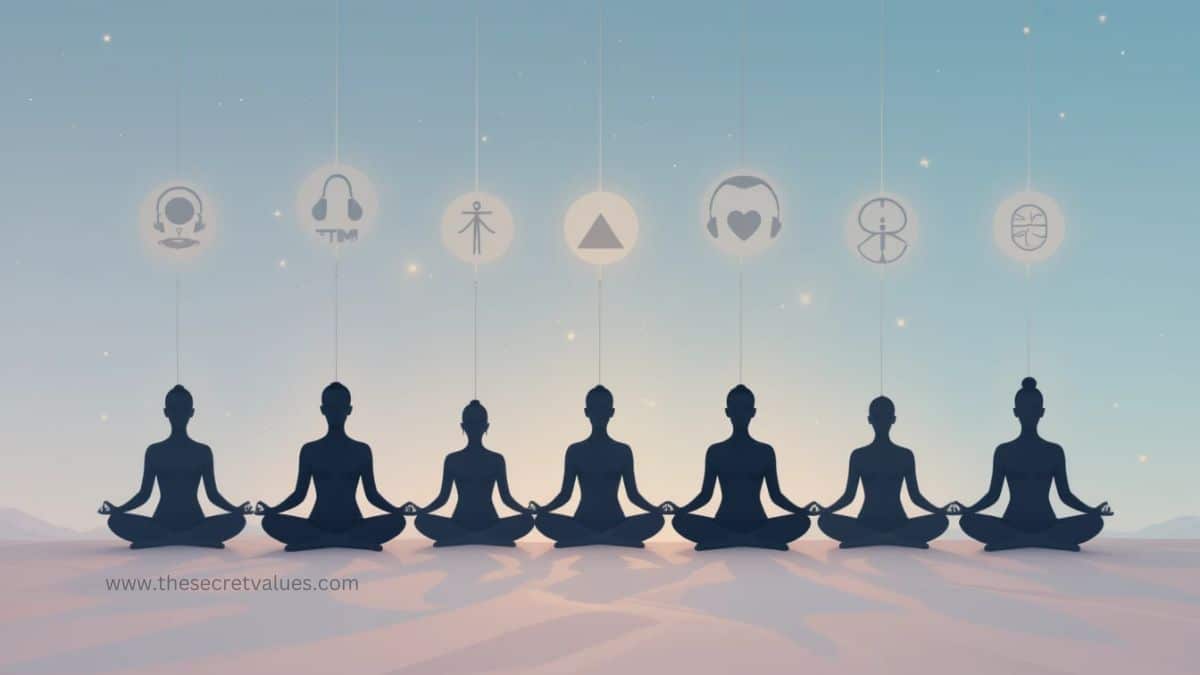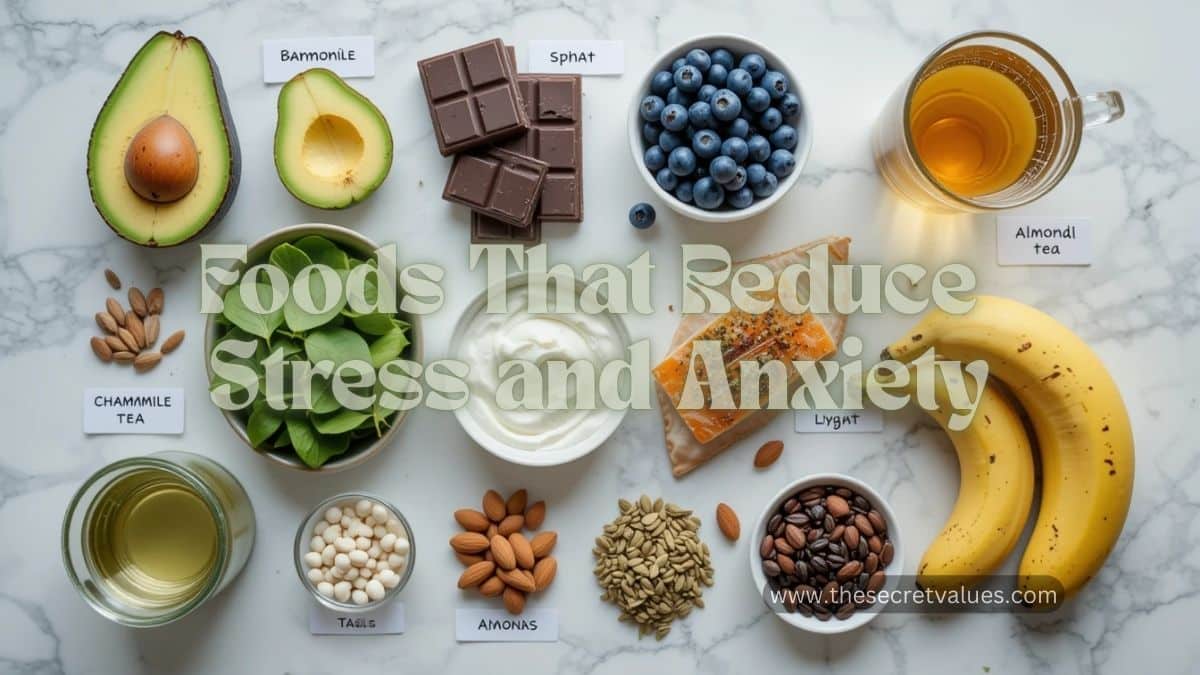Introduction
Mental wellness is a problem that is overlooked most of the time in the modern and busy world, which results in stress, anxiety and burnout. It is here that meditation is introduced. There are multiple types of meditation, each offering unique benefits for mental clarity, emotional balance, and brain health. Whether you’re curious about profound meditation benefits, want to know which meditation is best for brain function, or are simply trying to understand the difference between meditation and concentration, this guide will help. By learning about different practices, including cyclic meditation benefits, you can choose the one that best suits your lifestyle and mental health goals.
What Are the Main Types of Meditation?
Meditation is the activity that teaches your mind to be focused, calm and balanced with your emotions. The fact is, it does not have a one-size-fits-all solution. Different types of meditation serve various purposes, from enhancing focus to deep emotional healing. So, here are the seven most popular ones.
1. Mindfulness Meditation
Mindfulness meditation is all about being present in time. You watch your thoughts and emotions impartially. This kind can be used to minimise stress and enhance emotional awareness.
Deep Meditation Benefits:
Regular inclusion of mindfulness makes it easier to control emotions, minimise anxiety and promote happiness.
2. TM (Transcendental Meditation)
Transcendental Meditation consists of silently repeating a mantra to accomplish a deep relaxation. The practice is among the most studied types of meditation and is popular in enhancing the health of the heart as well as in minimising stress levels.
Here is why it is suitable for your brain:
TM enhances creativity and focus, making it one of the top contenders when deciding which meditation is best for brain performance.
3. Guided Meditation
Guided meditation is the best place to start as you learn to visualise and breathe with the use of an instructor or a recording. It is akin to taking a coach to help you in your mental relaxation.
How to use it?
Guided meditation is a good place to start if you are unable to meditate alone.
4. Vipassana Meditation
Vipassana is one of the most ancient forms of meditation that is directed at self-insight and observation. It is effectively used on 10-day spiritual retreats in silence.
Brain Connection:
Among all types of meditation, Vipassana is known to enhance neuroplasticity, which means your brain becomes more adaptable and capable of handling stress effectively.
5. Metta Meditation
The form is designed to cultivate a sense of compassion and love for oneself and others. By chanting certain words, you help yourself get more available to forgive and empathise.
Mental Health Advantages:
It increases emotional strength and reduces inner attacks, creating a favourable state of mind.
6. Zen Meditation (Zazen)
Underlying Buddhist types of meditation, Zen meditation practices are based on noticing both your breath and your thoughts quietly and remaining silent, more often than not, as you sit upright.
What is the reason to practice Zen?
It enhances focus and emotional stability, which is particularly beneficial when there is always something to distract the person.
7. Cyclic Meditation
Cyclic meditation is a special combination of yoga and relaxation, incorporating the practice of slow yoga poses followed by deep relaxation.
Cyclic Meditation Benefits:
It reduces fatigue, improves sleep quality, and enhances overall mental clarity—making it one of the most holistic types of meditation.
Difference Between Meditation and Concentration
A lot of individuals mix up meditation and concentration. Concentration is a process of thinking about a single item or single thought, whereas meditation is a process of observing thoughts as well as emotions, but without attachment. Meditation tends to induce natural concentration; however, they are not identical.
What Is the Best Meditation for the Brain?
Studies reveal that transcendental meditation and mindfulness are effective because they improve the health of the brain. They enhance the density of grey matter and cognitive impairment. Nevertheless, the most suitable type is individual goal-based emotional healing, focus, or relaxation.
Deep Meditation Benefits
Regular deep meditation enhances mood, reduces the level of stress hormones, strengthens the immune system, and raises general positive energy levels. People also acclaim the improvement of decision-making and better memory.
Finding the Meditation That is Right for You
Guided meditation or mindfulness is recommended if you are new. Loving-kindness or cyclic meditation can help in emotional healing. It is all about trial and error and trying to determine which style suits your objectives and character.
How to Begin Meditating
Select a silent memory region.
Decide on a definite time every day
Sub-ethinyl estradiol is used.
Have apps or directed sessions when required
It takes time, be patient
Conclusion
Exploring different types of meditation helps you find a practice that aligns with your mental health goals. Whether it’s the emotional depth of loving-kindness meditation, the scientific backing of transcendental meditation, or the unique cyclic meditation benefits, every style offers something valuable. The most important thing is persistence, just practice every day, just a few minutes, and you will see how your mind and life will change.
FAQs
1. What is the appropriate amount of time to meditate each day to get the best out of it?
Use 510 minutes at first and gradually settle in 2030 minutes daily.
2. What is the best meditation to deal with anxiety?
Mindfulness and loving-kindness meditation are very efficient in dissolving anxiety.
3. Does meditation enhance memory?
It is true, particularly mindfulness and transcendental meditation, that optimise the brain.
4. Can cyclic meditation be used by novice meditators?
Of course, it is easy because it is guided and contains gentle movements, making it accessible even to beginners.
5. What’s the difference between meditation and concentration?
Meditation is about awareness, which means paying attention to thoughts, whereas concentration focuses on a single object or task.






